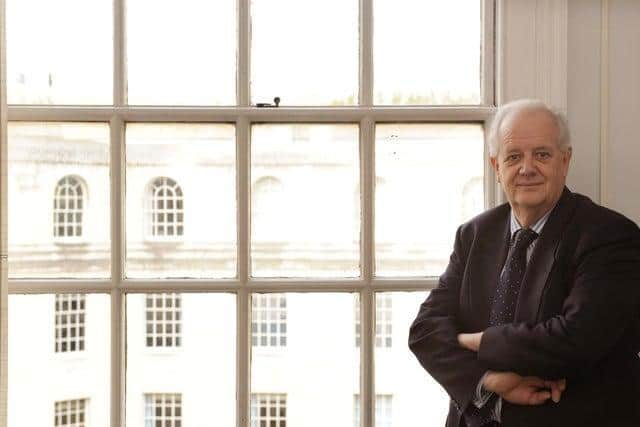Top Leeds Tory accuses council leader of 10pm curfew U-turn
and live on Freeview channel 276
The leader of the council’s opposition Conservatives group Coun Andrew Carter accused council leader Judith Blake of U-turning on her support for a government-imposed curfew, as well as accusing the authority of failing to use its powers to prevent the spread.
His comments come following a letter sent to the government earlier this week, signed by northern council leaders including Coun Blake, calling on the government to lift its 10pm ‘curfew’ restrictions on bars and restaurants in order to help local economies.
Advertisement
Hide AdAdvertisement
Hide AdBut Coun Carter said Coun Blake (Lab) was supportive of such a curfew in September.


Leeds City Council posted that the infection rate in the city had this week risen to 341.1 per 100,000.
Councillor Andrew Carter said: “We are supposed to be trying to work together in a non-political way as the city battles with a soaring infection rate. Unfortunately the council leader has made it more and more difficult to do this, claiming credit for everything that goes right and blaming the government for anything that goes wrong.
“Her latest comments, wanting more localised controls, are another example of this. Perhaps she needs reminding that her own chief executive was seconded to draw up plans for how central government and local government should try to deal with the second wave. This is part of the reason why a regional approach, as opposed to a national approach, is being taken.
Advertisement
Hide AdAdvertisement
Hide Ad“I would remind everyone that it is only a matter of a few weeks ago that Coun Blake was bemoaning the fact that the government had not introduced a curfew sooner.”
A BBC article from September 18 claimed council leaders had asked ministers to implement a 10pm limit on venues, but the suggestion had been turned down.
The piece reported a council spokeswoman said: “In our conversations we regularly discuss a range of potential options that could possibly be introduced to reduce Covid-19 rates in the city, and this has included a possible curfew for bars and restaurants.”
Coun Carter continued: “I am not for one minute suggesting that the government has got everything right, because it hasn’t, but neither has the council. I can give examples of where the council has in my view failed to use powers it already has to enforce social distancing. What would the administration want to do now? Impose restrictions on a ward by ward or street by street basis? On the one hand they complain about confusion and on the other hand seem to want to add to it.
Advertisement
Hide AdAdvertisement
Hide Ad“This all smacks of the leadership in Leeds being panic stricken as Covid rates rise massively. On the one hand, up until recently the Council Leader was talking about her contacts with government ministers and the work our Chief Executive was doing in London advising the government, now she says she’s never consulted. I understand she had two conversations with the Secretary of State only yesterday.”
Coun Blake and her fellow northern leaders had written to health secretary Matt Hancock this week setting out an alternative plan for local measures, which they claim could be more effective in controlling infection rates.
Leeds, along with neighbouring authorities Bradford, Calderdale and Kirklees, is currently under local restrictions which forbid more than one household mixing in houses or gardens.
Current restrictions, including the 10pm curfew have also led to concerns over the impact the pandemic is having on the local hospitality sector.
Advertisement
Hide AdAdvertisement
Hide AdAccording to the letter, the five-point plan would allow for greater local decision-making – giving councils the power to agree additional lockdowns before they happen, as well as a locally-controlled version of the “test and trace” system to help minimise the spread of the virus.